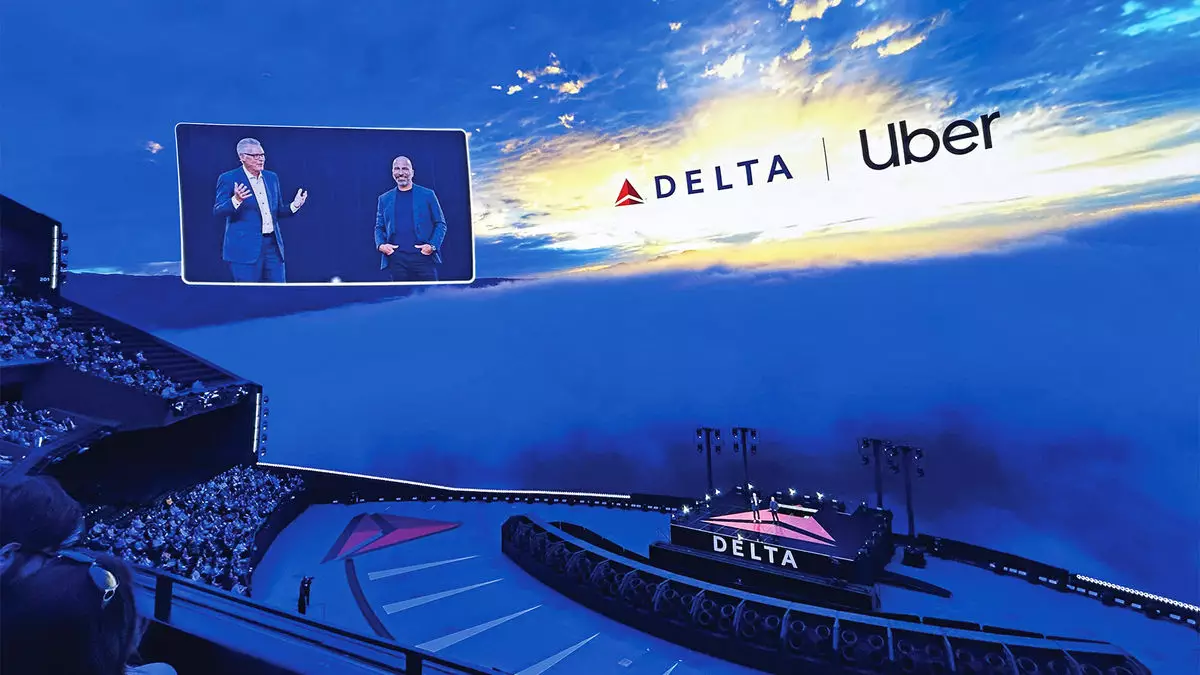In a bold move, Delta Airlines has announced its imminent partnership with Uber, set to launch this spring. This partnership not only replaces Delta’s existing loyalty collaboration with Lyft but also marks a strategic pivot in the airline’s approach to enhancing customer loyalty and experience. The announcement was made by Delta’s CEO, Ed Bastian, alongside Uber’s CEO, Dara Khosrowshahi, during a keynote session at CES in Las Vegas, signifying a high-profile start to this new alliance.
The new collaboration allows Delta’s SkyMiles members to earn a variety of reward points based on their spending with Uber. Specifically, riders will accumulate one point per dollar spent on the more budget-friendly UberX rides associated with airport commutes. For those opting for premium services, the point accrual increases to two points per dollar. The most lucrative option comes from using Uber Reserve services, where members can earn three points per dollar. Additionally, spending on eligible Uber deliveries for groceries and restaurants will yield one point per dollar as well. However, specifics regarding what constitutes as ‘eligible’ for the delivery points remain ambiguous, leaving customers eager for clarity.
Khosrowshahi emphasized the significance of the partnership, noting that approximately half of rideshare trips begin or conclude at airports. This statistic highlights an opportunity that both companies aim to capitalize on, creating a seamless transport solution for travelers. The integration of Delta and Uber exemplifies a growing trend where airlines are recognizing the importance of synergizing ground and aerial travel to enhance the overall customer experience.
Delta’s switch from Lyft to Uber is noteworthy, particularly as it mirrors the existing rewards structure with Lyft, where SkyMiles members earn two points per dollar spent on airport rides and one point on other U.S. trips. This shift could suggest Delta’s intent to align with larger and more influential partners, potentially resulting in a more significant impact on customer acquisition and retention.
Moreover, in an effort to diversify its value offerings, Delta is not just leaning on rideshare partnerships. The airline also revealed upcoming collaborations aimed at enriching in-flight entertainment, such as providing ad-free YouTube Premium and Music tailored for its passengers. This move aligns with Delta’s objective of fostering a unique and personalized travel experience.
Adding another layer to this initiative, Delta announced a partnership with former NFL star Tom Brady, who will spearhead a wellness program titled Well Travel. As a strategic advisor on concepts related to teamwork and brand positioning, Brady’s involvement underscores Delta’s commitment to promoting health and wellness among its clientele.
Delta’s strategic partnership with Uber not only enhances its loyalty program but also signals a broader movement toward integrating services in the travel industry. This collaboration, complemented by additional partnerships in entertainment and wellness, positions Delta Airlines as a frontrunner in delivering comprehensive customer experiences. As industries evolve, such alliances will likely prove pivotal in how companies adapt to the changing preferences of travelers.


Leave a Reply